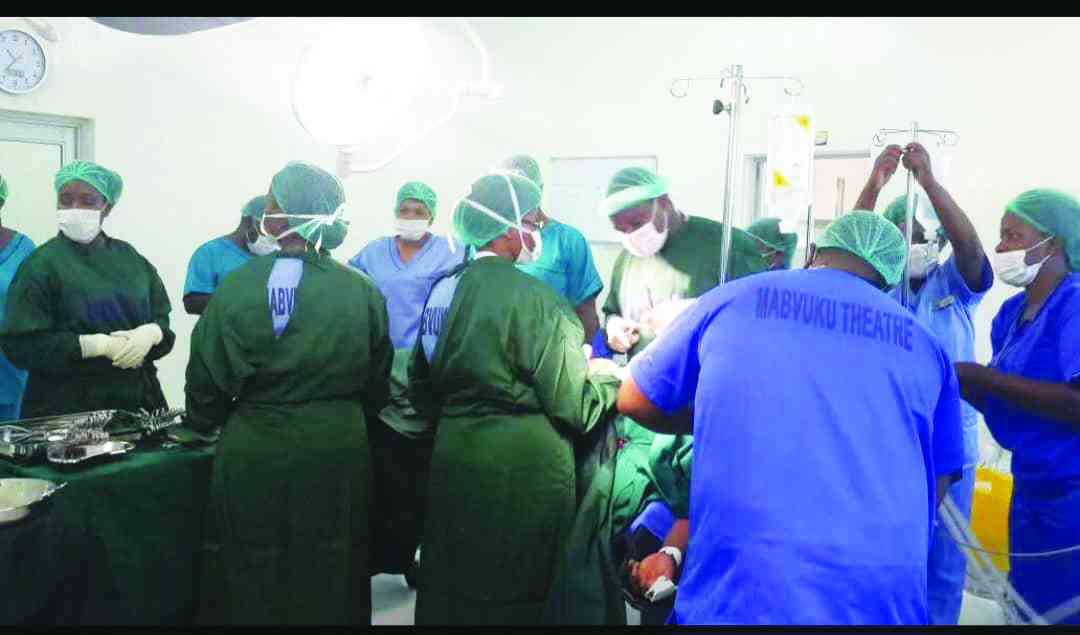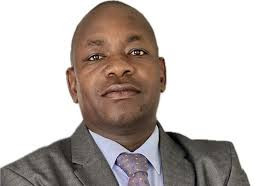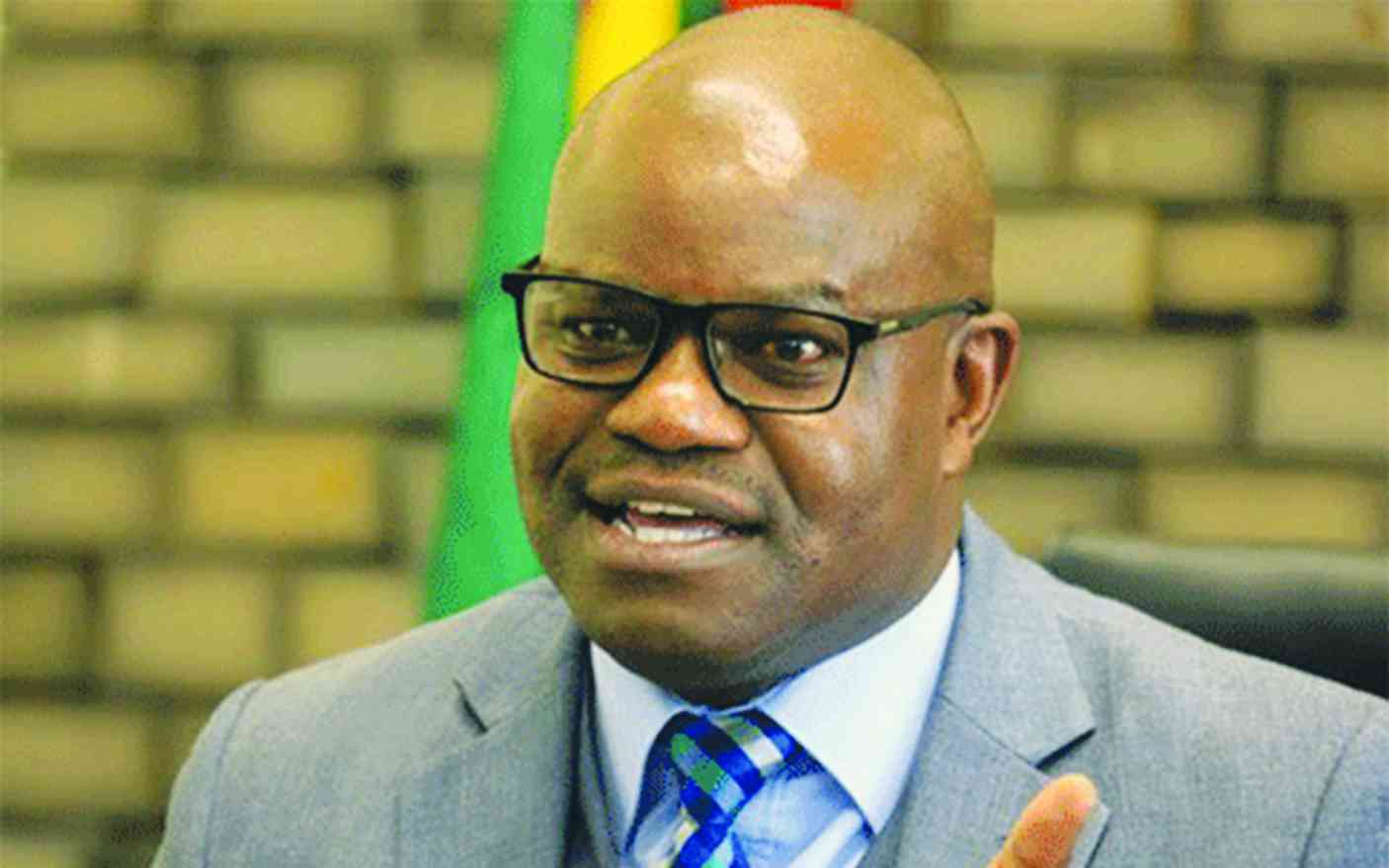
A WINDSWEPT transformation is underway in Harare's public healthcare sector, spearheaded by an ambitious plan to redefine primary health care.
The initiative will see a comprehensive upgrade of the Mabvuku Polyclinic in Harare. This revitalisation effort, partly fuelled by a significant US$1 million partnership with the Swiss government, aims to pull City of Harare health facilities back from years of chronic underfunding, establishing a new gold standard for municipal healthcare delivery.
In a recent telephone interview with City of Harare Health director, Prosper Chonzi, who spoke with enthusiasm about the vision for Mabvuku Polyclinic, positioning it not just as a local clinic, but as the future model for decentralised, high-quality healthcare across the city.
The core of this vision is a shift from the limited, daytime-only services typically offered by municipal clinics to a truly comprehensive, 24-hour healthcare hub.
“We want Mabvuku Poly Clinic to be the flagship clinic in the City of Harare, the best ever in terms of service delivery both quantitatively and qualitatively,” Chonzi asserted.
The crux of the 24-hour imperative will see all services running 365 days, 24 hours a day. For too long, Harare's municipal clinics have operated on a limited schedule, with outpatients departments closing at 16:30 and only reopening at 08:00 the following morning.
Chonzi highlighted the critical gap this creates, noting, “what would then be happening between 4:30p.m. and 8 the next day. People will still be falling sick and people still be needing services”.
The first pillar of the Mabvuku transformation is, therefore, the commitment to 24-hour operation for both the primary healthcare and maternity sides of the polyclinic.
- HCC considers cancelling ZimPhos contract
- We're not immune to prosecution: Land developer
- Govt to blame for Mupedzanhamo chaos
- City of Harare, Augur deal legit: Supreme Court
Keep Reading
“While the maternity side has historically been open around the clock, extending this service to the general primary care section is a massive step forward, ensuring continuous access to care when the community needs it most,” Chonzi said.
The partnership is specifically focused on building capacity for diagnostic equipment and upgrading Mabvuku to provide 24-hour casualty services.
This ties directly into Chonzi's bigger picture: redefining primary healthcare provision into something much more comprehensive.
A key development for Mabvuku, and a first for a municipal clinic in Zimbabwe, is the establishment of an Accident and Emergency (A&E) department and casualty unit.
Chonzi sees this as vital for residents living along busy corridors such as Mutare Road.
“The current situation often forces accident victims to be transported long distances to major hospitals such as Parirenyatwa, Sally Mugabe leading to unnecessary delays,” he said.
“If you are involved in an accident along Mutare Road, you don’t have to be ferried all the way to Parirenyatwa Hospital to get services.
“You go to Mabvuku, you get your service there at Mabvuku. This is like a casualty at Parirenyatwa... We want that to be happening at Mabvuku Polyclinic,” Chonzi emphasised.
This A&E section will include a small casualty theatre for resuscitation and minor cases. The clinic will also offer Diagnostics and Specialised Services beyond basic treatment.
“Mabvuku is set to become a diagnostic powerhouse at the primary care level. The facility already has a laboratory, which is slated for upgrade and ISO certification, enabling it to perform critical investigations such as full blood counts, renal function tests (U&Es), and liver function tests,” he said.
Crucially, the clinic aims to incorporate radiology services traditionally only available at central hospitals.
“There's nothing to stop us putting an X-ray machine there,” Chonzi remarked, outlining plans to offer X-rays, ultrasound scans, and even advanced imaging such as MRIs and CT scans at the polyclinic.
Mabvuku Polyclinic already has a pharmacy, which will be scaled up into a state-of-the-art facility ensuring adequate stocks of essential drugs.
“Mabvuku Polyclinic is already making history. It is the first municipal-run clinic in the city and the country to have an operating theatre,” Chonzi said.
“We have a municipal-run clinic with an operating theatre, which is now doing Caesarean sections and clean elective surgery for 24 hours.
The initial phase saw the facility performing scheduled, elective Caesarean sections. This quickly progressed to handling emergency Caesarean sections during the day, and now, they have successfully transitioned to performing emergency Caesarean sections throughout the night — 24 hours a day.
This expansion is timely and critical, as the major referral facility, Mbuya Nehanda Maternity Hospital, is currently closed while the government funds renovations.
Mabvuku Polyclinic has stepped into the void, taking on patients who would otherwise have been transferred there.
“Whilst Mbuya Nehanda Maternity Hospital is still closed, people still need the services,” Chonzi noted, underscoring the vital role Mabvuku is playing in ensuring continuity of care.
He said collaboration results in better health outcomes. No one knows everything
“The success of a 24-hour, comprehensive facility hinges on adequate staffing. Adequate human resources ensure a full complement of staff, 24 hours a day. This includes doctors and specialised nurses. Midwives, anaesthetists, scrub nurses, and theatre nurses. Specialised doctors man the Casualty department,” Chonzi said.
Crucially, the City of Harare is working closely with the ministry of Health and Child Care, led by Douglas Mombeshora, to secure support staff.
“Specialists, including obstetricians and surgeons, are being brought in to support the team at Mabvuku,” Chonzi said.
“The clinic is also hosting rotating doctors from the ministry of Health, including final-year medical professionals, who gain essential hands-on experience in a designated, high-volume institution.”
The ultimate strategic goal of the Mabvuku model is not just to improve local care but to decongest Harare's central and provincial hospitals, Parirenyatwa and Sally Mugabe.
These facilities are meant to be tertiary and quaternary centres, teaching units where highly specialised procedures such as open-heart or brain surgery take place.
“We want to decongest our central hospitals so that they deal with the big cases such as open-heart surgeries, brain surgeries,” Chonzi explained.
By enhancing peripheral facilities such as Mabvuku to manage the bulk of primary care, minor surgical cases and medical emergencies, the central hospitals can focus on their designated role as high-level referral and teaching institutions.
Cases can be “quickly managed at the periphery”, which directly benefits residents with faster, more accessible care.
The Mabvuku Polyclinic, which serves residents of Mabvuku, Tafara, Caledonia and surrounding areas, is currently receiving strong support from the City Council, which has provided land and significant budgetary backing.
Chonzi is confident in the path forward, stating that the project is “doable” and already being achieved.
The dream is to replicate this model across the city, aiming for at least four enhanced polyclinics offering the same level of comprehensive, 24-hour service.
According to the Zimbabwe National Statistics Agency 2022 Population and Housing Census, the official population for Harare City Proper is 1 849 600.
“Mabvuku Polyclinic is not just being upgraded; it is being transformed into a destination for comprehensive healthcare, a bold first step in realising the vision of a resilient, effective, and decentralised public health system for the City of Harare,” Chonzi said.
“With Harare's population, four district hospitals would properly serve the residents. We intend to replicate the Mabvuku model to other suburbs."
The revitalisation of Mabvuku Polyclinic, backed by a US$1 million Swiss partnership, is transforming primary healthcare in Harare.
This initiative establishes the clinic as the flagship model for a new, resilient public health system, moving beyond limited hours to provide comprehensive, 24-hour services.
This strategic upgrade of the 30-bed facility to 100 beds is designed to decongest central hospitals by managing the bulk of care at the periphery.
The goal is to successfully replicate this model across the city, providing faster, more accessible care to all residents.











